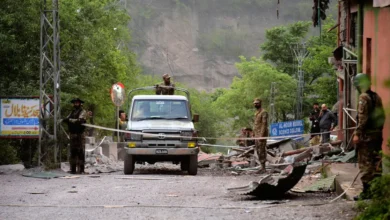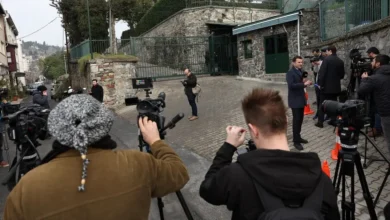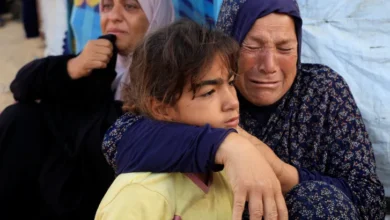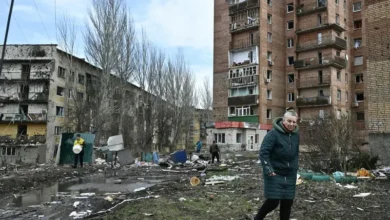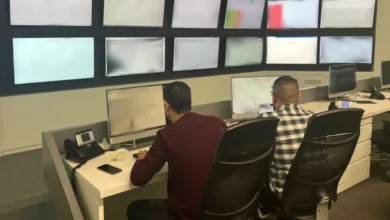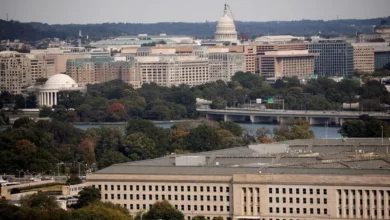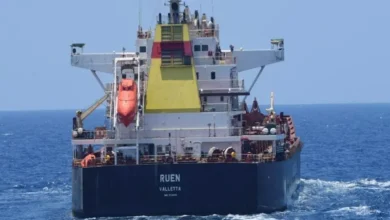Cape Town’s poor ‘neglected’ in South Africa’s only opposition-run province
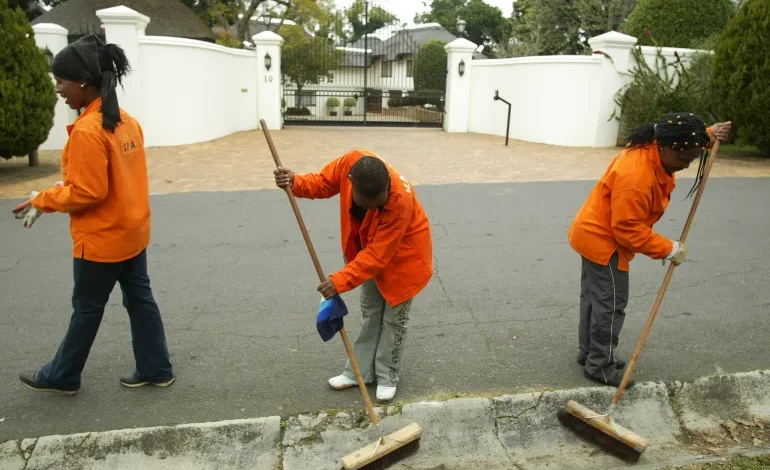
In the leafy, picturesque southern suburbs of Cape Town, Dee Lackay, 38, is making a new start after leaving Johannesburg for what he feels is a safer and better city.
The ambitious personal trainer used to run a specialised exercise studio in South Africa’s economic capital until the high crime rate and lack of service delivery became too much for him and his wife to handle.
“One thing about Jo’burg was that it was getting too dangerous, especially around the suburbs – so where else were you going to move?” Lackay told Al Jazeera, recounting the carjackings he witnessed and saying even the wealthier parts of town were not immune.
Adding to it, the city’s crumbling infrastructure – constant power cuts, water shortages and unmaintained roads – and his lack of faith in the government to fix it left him looking to leave.
“Potholes got worse and the [governing African National Congress] ANC was not fixing them … there were always water issues, you cannot live like that,” he said.
Last year, the couple joined a wave of middle and upper-class people “semigrating”, or internally migrating, to better-run municipalities in the country. According to the latest census data, Gauteng and the Western Cape – the provinces housing Johannesburg and Cape Town, respectively – are the top migration hotspots. But experts say Gauteng is an immigration hub, while the Cape attracts more “semigrants”.
The Lackays too opted to move to the Western Cape, the only province not run by the ANC but by the official opposition party, the Democratic Alliance (DA).
Now they are surrounded by the beauty of the Constantiaberg mountains, spacious homes, clean streets, regular services and private security controls. Lackay says he feels safer in the formerly whites-only suburb where he now lives.
But the Cape Town Lackay found is not one that is accessible to all – especially those living in neglected townships and low-income neighbourhoods far from the suburbs and touristy city centre with its pristine beaches and million-dollar properties.
‘A little Europe outside Europe’
Almost 20km (12 miles) from the city centre, Gugulethu, a majority Black township, is home to about 100,000 people and is a world apart from the wide airy roads and spacious homes of the southern suburbs.
Among small brick houses and shacks made of corrugated iron hang election campaign posters for this week’s vote, including the DA’s blue and red signs, reading: “The city that works for you” and “Rescue South Africa”.
The DA, which has governed the Western Cape since 2009, calls Cape Town the “best-run city in South Africa”, setting it apart from the rest of the ANC-run country that it often lambasts as “broken, collapsing, corrupt, chaotic” – a message it has reinforced ahead of Wednesday’s vote.
Activist Elethu Nkala, 24, who moved to Gugulethu from Cape Town’s other main township Khayelitsha with his family when he was younger, said when he sees the DA posters about a city that works, he wonders who they are talking to.
“[The city is] a little Europe outside Europe; it makes sense that they say it to their small minority that supports what is thriving within Cape Town,” Nkala said, talking about wealthier areas beyond the townships where the DA seems more serious about service delivery.
Gugulethu, together with other largely non-white working-class areas like Nyanga, Mitchells Plain and Manenberg, is part of the Cape Flats – a flat, sandy stretch of land on the outskirts of the city where people struggle with joblessness, overcrowding, lack of services and high levels of violent crime and drug abuse.
“Come out of the airport and see the informal settlements and you know there is still a lot to be done,” Nkala told Al Jazeera.
“The best-run city in the world? Yes, maybe the CBD [Central Business District] and parts of it, but there is a reality that is not being told: there are still people fighting for flushing toilets. We can’t say we are the best-run city when there are basic things like a toilet still needed by communities.”
Nkala said the community feels abandoned by the city leaders and that there is an ongoing struggle for services and attention.
‘Things are not working in townships’
In May, former DA leader Mmusi Maimane, who is now with the opposition party Build One SA, visited the area and told residents his old party had been neglecting them.
“Today, as I arrived here in Gugulethu, I asked myself what the living conditions here tell us about the government in this province. What does the failure of service delivery, of sewerage running in the streets, of potholes and pit latrines, and of refuse pile-up tell us about this government?
“They have been in provincial government in the Western Cape for 15 years! Yet they want you to believe it’s only been 15 minutes,” Maimane said.
